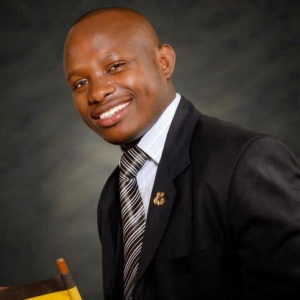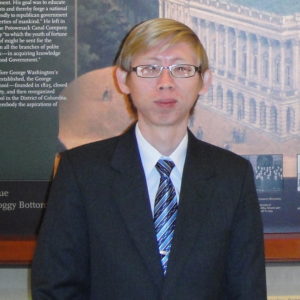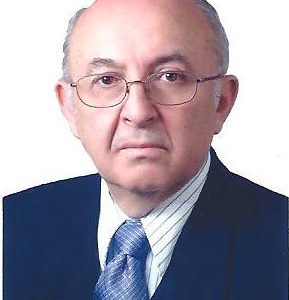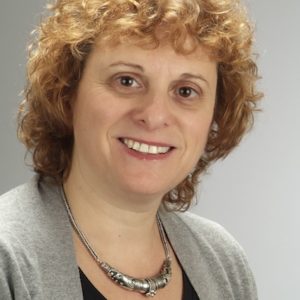Persons with Disabilities Roundtable
Stakeholders Roundtables Venue: National Library Casa De La Cultura- Akiko Ito United Nations

- Ambrose Murangira Executive Director Uganda National Association For The Deaf

- Ana Lucia Arellano RIADIS

- Derrick Cogburn Institute On Disability And Public Policy

- Dr. Takashi Izutsu Associate Professor The University Of Tokyo Japan

- Gabriela Michetti Vice-President State Delegation Argentina

- Khy Huy Research Officer Institute On Disability And Public Policy Cambodia

- Luis Gallegos President Board G3ICT G3ICT Ecuador

- Mohammed Ali Loutfy Institute On Disability And Public Policy (IDPP)

- Pong Cruz Research Associate World Enabled

- Risnawati Utami Executive Director OHANA Indonesia

- Silvia-Perel Levin Chair NGO Committee On Ageing Geneva United Kingdom of Great Britain and Northern Ireland

- Sylvana El Lakkis DPI Second Vice Chair Lebanese Physical Handicapped Union / Disabled People International Lebanon

- Toshiya Kakiuchi CEO Mirairo Inc. Japan

- Victor Pineda Pineda Foundation / World Enabled

Urbanization as Catalyst for Disability Inclusive Development
Based on many decades of the United Nation’s work to advance the status of persons with disabilities and since the adoption of the Convention on the Rights of Persons with Disabilities (CRPD) in 2006, the commitment to disability-inclusive development has been further strengthened at international, national, and local levels in a variety of ways. For the estimated one billion persons with disabilities across the world, towns, and cities often present a combination of physical, environmental, and social barriers to facilities and public services. Poor planning and unregulated urban development can have particularly devastating consequences for persons with disabilities. The New Urban Agenda is an action-oriented document which sets global standards for sustainable urban development. Rethinking the way we build, manage, and live in cities has provided an historic opportunity to advance disability-inclusive development, and to achieve the goal of the United Nations in the field of disability: the full and effective participation of persons with disabilities as beneficiaries and agents for transformative changes in society and development. This needs to be further explored in the context of urbanization. It requires that the rights, concerns, and perspectives of persons with disabilities to be fully taken account, and that national governments, development partners, and all other stakeholders engage in specific action to effect the inclusive and accessible urban development for all.
Objectives of the Roundtable
- Improve the overall participation and engagement of persons with disabilities in the implementation and monitoring of the New Urban Agenda.
- Recommend and implement measures to enhance the participation of persons with disabilities in the New Urban Agenda and broaden disability-inclusive development initiatives through an expanded use of accessible information and communication technologies to enable enhanced and diversified physical and virtual participation.
- Recommend and implement strategies to engage national, regional, and local authorities, civil society and other stakeholders in the implementation of the New Urban Agenda to ensure that all stages of urban development are inclusive and accessible for persons with disabilities.
- Ensure that the implementation of the New Urban Agenda is consistent with and supportive of other major global initiatives related to persons with disabilities such as the Sustainable Development Goals (SDGS), the Convention on the Rights of Persons with Disabilities (CRPD), The World Summit on the Information Society (WSIS+10), and the World Conference on Disaster Risk Reduction (WDDR)
Guiding Questions
- What are the actions and measures that national and local authorities, civil society, and other stakeholders have been or will be engaged to ensure that all stages of urban development are inclusive and accessible for persons with disabilities.
- What are the (possible) obstacles and barriers of the implementation of the New Urban Agenda related to disability-inclusive urban development? And how should we tackle these obstacles and barriers?
- What efforts can be made to expand the current global network on disability-inclusive and accessible urban development, to engage more governmental and non-governmental agencies, experts from academia and practice, and the private sector?
- What else we can do to improve the implementation of the New Urban Agenda related to disability-inclusive development, especially in the areas of policy design and implementation, monitoring, and global networks?
Roundtable Follow Up
- How do you propose to monitor the outcomes of this session in order to report back on progress at the 9th Session of the World Urban Forum (2018, Kuala Lumpur, Malaysia)?
